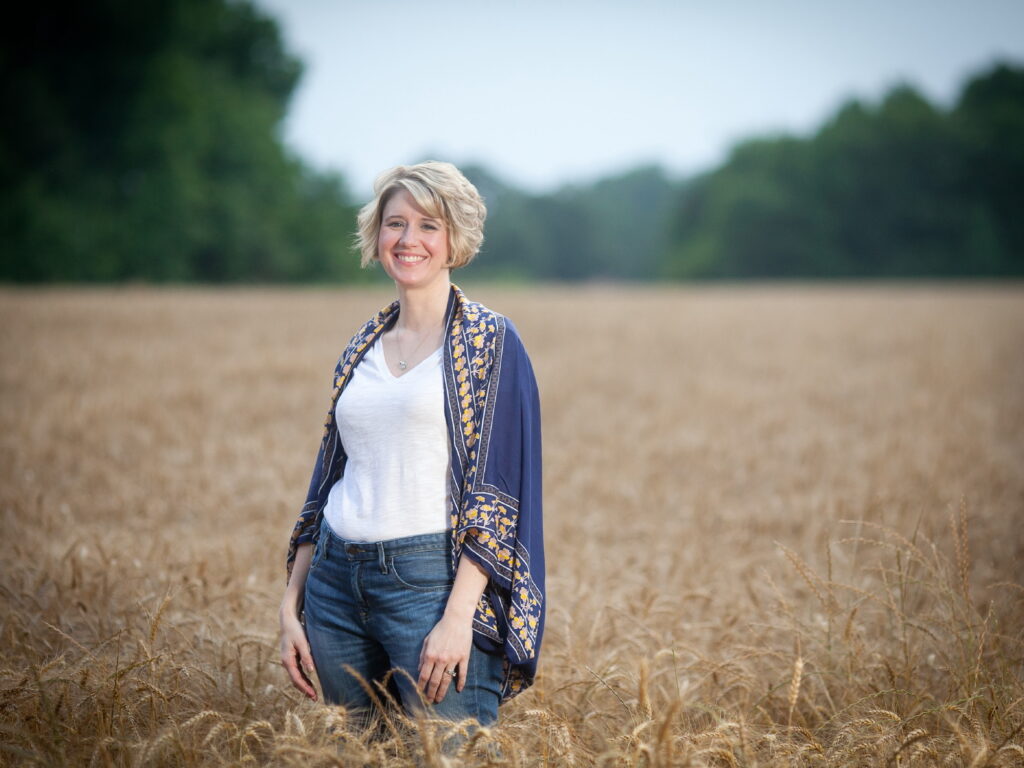April Daniels helps students achieve their goals

CPHS Staff Member: April Daniels
Title: Program Coordinator, Clinical Research Department
Where are you originally from? I am a born and raised North Carolinian. I have lived in the Garner/Clayton area for 32 years.
How long have you been working at Campbell? I started my position with Campbell University in October of 2019.
Where did you go to school/what degree(s) do you hold? After graduating from high school, I attended Johnston Community College and graduated with an Associate in Applied Science in Medical Office Administration. In January of 2017 I continued my education, and I graduated in December of 2017 from Purdue University Global with a Bachelor of Health Care Administration. I then continued with Purdue University Global and completed my Master of Health Care Administration in February of 2019.
Tell us a little bit about how amazing your current position is and what you do. I am the Program Coordinator for the Clinical Research Department. The bulk of my role is dedicated to advising students who are pursuing the Bachelor of Science in General Science with a Concentration in Clinical Research (BSGS) or the Bachelor of Science in Clinical Research (BSCR) degree. The BSCR Curriculum requires an experiential component. This includes a 16-week Internship that must be completed during a senior’s last semester at Campbell. I offer guidance to seniors through the pre-internship process, and support to both the intern and site throughout the duration of the 16-week internship. I truly enjoy my work and interacting with all of our students! It is encouraging to see their enthusiasm for the Clinical Research industry.
What is your favorite part of working with students? My favorite part of working with students is seeing them achieve their goals. It is amazing to watch as they push themselves and grow as individuals. It is also remarkable to witness a student transition from being unsure about their purpose or their passion to realizing what they want to do with their life, and therefore what degree(s) they need to pursue to make that purpose and passion a reality.
How do you feel like your previous experience, both personal and professional, helps counsel students on what classes they need to take? I spent almost 20 years working in front line patient care. During this time, I worked in several specialties within the industry. My last role was with Hematology/Oncology at UNC/Rex, which is also where I saw firsthand the importance of Clinical Research. People find it odd when I say that Hematology/Oncology was my absolute favorite specialty. Then I explain that while it was the most mentally, physically, and emotionally challenging professional experience, it was also one of the most rewarding.
With these previous experiences, my goal when interacting with students is not too different than what I did for my patients on a daily basis. Depending on the situation, I offer encouragement and support; sometimes, I need to redirect or refocus their attention. Occasionally, they need to take a step back and remember their purpose.
At Campbell we believe in purposeful lives and meaningful service. What legacy are you leaving? My current role within CPHS merges my passion for health care with my desire to make a positive impact and guide the next generation of health care workers.
Reasons why prospective students should choose Campbell over other Graduate and Professional Schools: North Carolina has a bevy of educational institutions that offer a wide array of degrees. More specifically, even within a relatively short distance from Campbell, there are numerous educational options; however, Campbell sets itself apart due to its smaller class size and more personal atmosphere. I have observed that everyone who works here strives to make each person feel welcome. Although some may rationalize that students do not need this or it is unnecessary to their education, I feel it is a benefit. When a student is comfortable in their surroundings and with their professors, instead of feeling overwhelmed or overlooked, they are more likely to be engaged. This improves the likelihood that their educational journey, whether this is in an undergraduate program, a graduate program, or a professional school, will be successful.
Anything else you would like to add? I am also considered Adjunct Faculty, and I am the Instructor for CLNR 341: Medical Terminology course.
